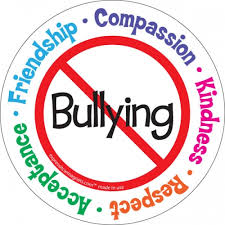A regular day when Mrs. Bhat was finishing her daily chores, asking her daughter Anvika to complete her evening snack soon so that she could head out to play with her gang of girls. Her friends usually wait for her near the play area of their posh apartment complex. The kids are seen playing with bicycles, scooters and Frisbees around this time. But that day, Anvika was hesitant to go out. She sat staring at the floor, just brushing her fingers over the cupcakes but not eating them. “Anvika! Aren’t you done yet dear? Your friends would be waiting for you. Will you not go out today?” – Mrs. Bhat cried to wake her smart 10 year old up. But Anvika was still nowhere close to getting ready. Her mother was quite worried as Anvika is usually known to be a chirpy girl who always smiles and spreads happiness with her conversation. This dull face doesn’t seem to be something usual. Mrs. Bhat gently placed her hand over Anvika’s shoulders and asked her about her sadness. That’s when Anvika broke the silence, sobbed hard over her mother’s shoulders. It was then when she revealed something that bothered her at school.
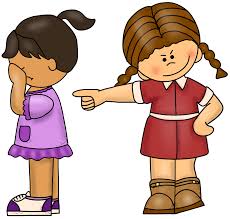
Bullying is a psychological epidemic which is prevalent at almost all parts of the world. According to Janis R. Bullock, professor at the Health and human development department of Montana State University – “Bullying is a repeated, unprovoked harmful action by one child or many children against another one.” Bullying is seen among the group of every age group of children. School, play groups, sports clubs or art class. Bullying scenarios are found at each place.
Why is this Bullying such an important discussion for parents? Why do kids get bullied or why do some kids bully their friends? The reasons differ based on the physical appearance like size, colour or other factors like caste, socio –cultural or the economic background.
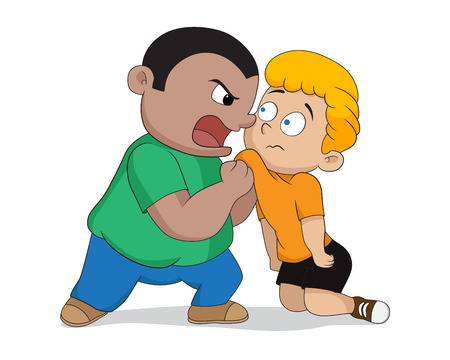
Reasons for bullying…
- Possibilities that some kids bully their peer as they themselves would be insecure about their appearance or any other elements that bother them. They find solace in judging and bully the others which might comfort them. The feeling of being dominant and strong after bullying is the prime reason behind their actions.
- At some cases it would be their extended format of an aggressive behaviour. Being adamant/stubborn results in the discovery of a victim who would visibly be weak and then, they try to control the actions of the others through constant bullying in the form of playing pranks, calling them names and making silly faces which would irk the victimised child. Thus gaining a pleasure which becomes a soothing routine.
- Some children also cultivate the habit of bullying after being victimised earlier from another bully. Being a prey builds up the frustration in them which in turn results in them following some rebellious footsteps and thus, a new bully is born.
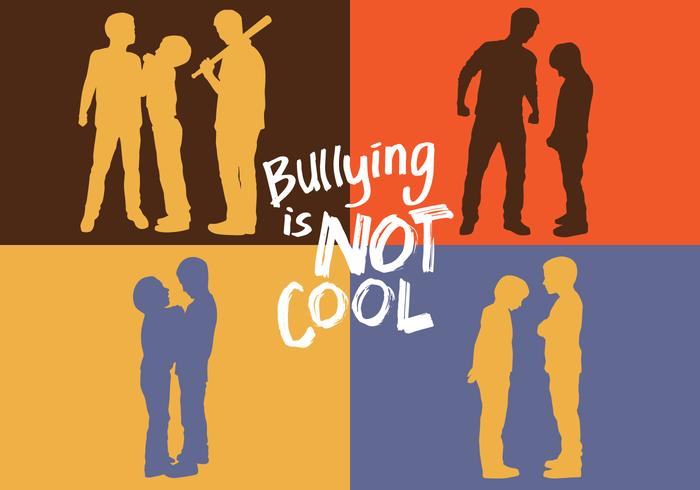
Results of bullying…
- There would be a lack of confidence. Children hesitate to open up their true self as they feel extremely paranoid about people judging them.
- Children often fall prey to depression which stretches for long if not addressed much earlier.
- Losing trust or disheartening if the bullying is from the person he/she likes or adores much.
- The baseless feeling of being powerless and the belief of being unpopular among the crowd.
- Children develop a habit of loving their own company as nothing or nobody seems to be worth of spending time with. This in turn makes them Introverts and the cycle continues.
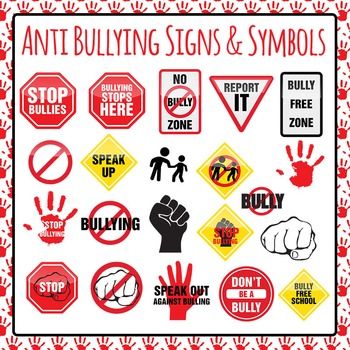
Steps to be taken…
- Teaching them to say NO. Tell them that “No” actually means NOT acceptable. It neither means i’m not interested nor that it can be ignored. Being clear about the intentions of not getting hurt prevents damage in the initial stage, making no way for any rectifications later.
- Any learning starts from home. Never ever try to mimic your child’s behaviour and tell her/him that it’s funny or silly. Ex: Calling your son a cry baby and making silly faces. The child might never come to you to share anything in the future just to avoid one more royal round of bullying from you. Cultivating this habit might let your child either curb the inner feelings or explode it time and again due to built up extreme frustration.
- DO NOT tolerate and DO NOT irritate. No matter its friends, siblings or anyone… bullying must not be encouraged. Either getting bullied or bullying someone else…A child must be aware that this is something unpleasant which is unacceptable and must be aware of the fact that this can actually make some sad.
- Value education plays a vital role. Being kind and compassionate is one of the best policies which can be inculcated to avoid any kind of unforeseen unpleasant situations. Never make any harsh comments in front of your child giving them a “Green Signal” indicating that –‘If my mom/dad can swear, then it is acceptable in my case too.’ Ex: Keeping cool while driving a car on a heavy traffic day – Takes a lot of stress management, but hey… it’s all worth it J
- Homework for parents – Keep a check on the places or the people whom your child interacts with. If you sense that something is bothering your child, try to spend more time with them instead of asking them directly. Involuntary behaviour speaks a lot about their personality. You never know – Your child may be a victim or a culprit who is bullying others and is trying to hide it from you.
